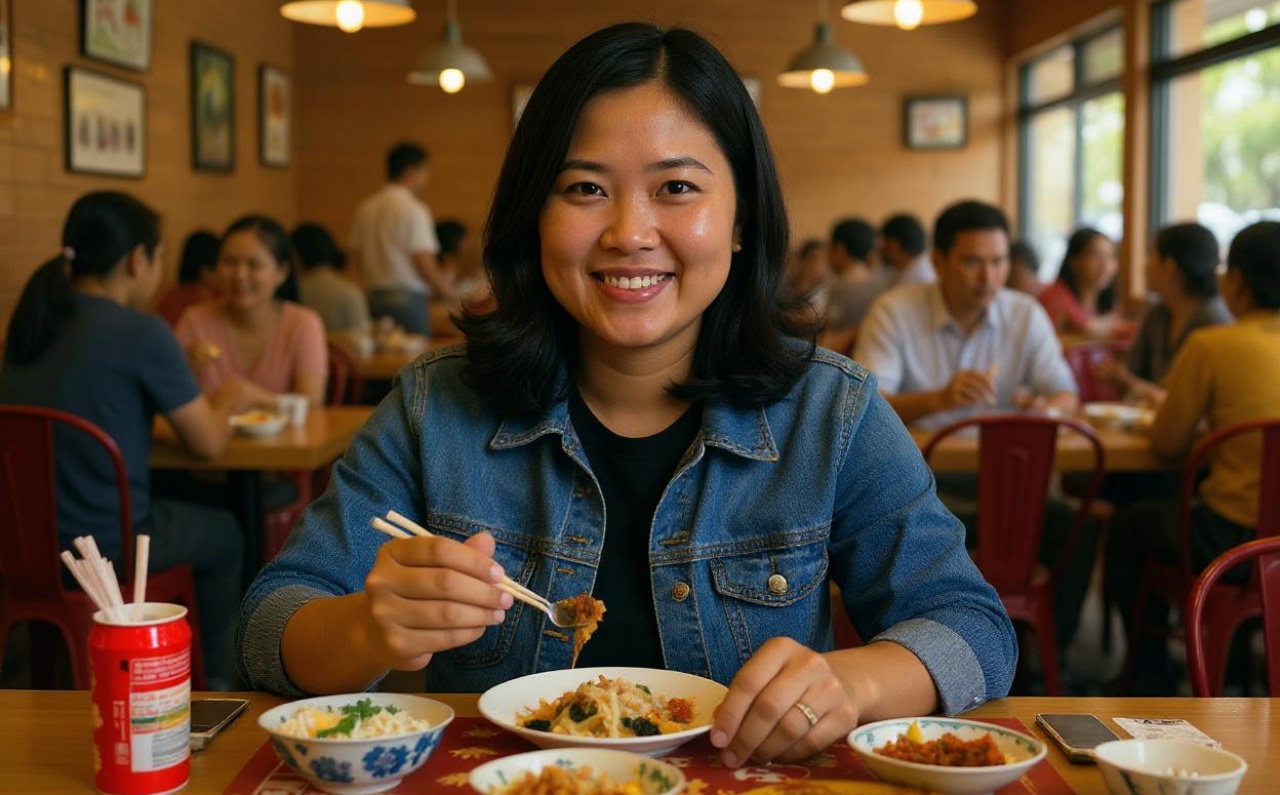When I moved to Taiwan, I thought the hardest part of adjusting would be the language. Turns out, it was the food habits.
Not the food itself—it’s amazing. But how people eat? That’s where the culture shock really hits.
As a Filipino raised on “salo-salo” (shared meals where you pass around bowls, rice cookers, and stories), Taiwan’s dining etiquette felt like walking into a different universe.
Here are ten unspoken food rules that nobody told me—things you only learn after your spoon is already mid-air.

Pay First, Eat Later
In Taiwan, you don’t wait to be billed after your meal. You line up, order, pay before you eat, and take a buzzer or tray number with you.
No “Pakibalot na lang po,” no splitting later.
This system’s fast and efficient—but it means you need to know exactly what you want, or you’ll hold up the line with your indecision (been there).
Tray‐Return Stations Are Sacred
After eating, you don’t just get up and leave. You clean your table and bring your tray to a return station.
At first, I thought this was just for food courts. Nope—everywhere. It’s a small act of courtesy that keeps places spotless. Skip this and you’ll definitely feel the stares.
Bento Boxes Are Personal Territory
Taiwanese bento boxes (便當, biàn dāng) are beautiful little compartments of meat, veggies, and rice—but don’t you dare reach in to try a bite.
No sharing. No “Tikman ko nga ‘yan.”
They’re treated like a personal meal, not a centerpiece for group tasting.
Soup Isn’t Meant to Be Shared
We Filipinos love big shared bowls of bulalo or sinigang—but here, soup comes in individual servings.
You won’t find a big pot in the middle of the table unless you’re at hotpot. Want soup? Each person orders their own. Asking to split one can feel… impolite.
No Tipping (Really, Don’t)
Out of habit, I tried tipping once. The cashier literally chased me to return my change.
In Taiwan, great service is just part of the job. Tipping can be seen as awkward or even disrespectful—it’s like saying “You needed a reward for doing your work.”
Chopstick Etiquette Is Real
Chopsticks here aren’t just utensils—they come with rules:
- Never stick them upright in rice (symbolic of funerals).
- Don’t stab your food.
- Don’t point with them.
- Always use “communal” chopsticks for shared dishes (公筷, gōng kuài).
No one will yell at you, but they will notice.
Self-Serve Everything
At casual restaurants, you pour your own water, get your own condiments, and grab tissues from the side counter.
Don’t sit and wait for someone to serve you soy sauce—it’s not coming.
Helping yourself isn’t rude—it’s expected.
Quiet, Please
Even in crowded noodle shops, people talk in soft tones. There’s a gentle rhythm to dining: soft chatter, clinking bowls, a few slurps of broth.
No loud kwentuhan. No “Uy, chismis muna tayo.”
It’s a dining culture rooted in quiet appreciation.
Eating While Walking Is Normal
Back home, eating meant sitting down. But in Taiwan? Everyone’s snacking on something.
You’ll see people walking with scallion pancakes, riding the MRT with boba, or scarfing down rice balls between bus stops. It’s fast-paced, casual, and very commuter-friendly.
Solo Dining Isn’t Lonely
Ramen bars. Hotpot counters. Bento shops. There are plenty of spaces built just for one.
And nobody stares. Nobody asks “Where’s your ka-date?”
Eating alone is normal—and kind of empowering.
I’ve come to love it as quiet “me-time.”
Final Thoughts
What started as culture shock became quiet admiration. Taiwan’s unspoken food habits made me rethink not just how I eat, but how I respect the people making and sharing food with me.
There’s an elegance to the system here: order clearly, return what you used, savor your space.
If you’re a Filipino moving here, just know:
You won’t lose your love for salo-salo—you’ll just learn how to balance it with a new kind of food mindfulness.
And yes, eventually, you will stop offering bites of your bento to your seatmate. Maybe.
Frequently Asked Questions
Q: Is it okay to ask for extra rice or condiments?
A: Yes—but do it yourself. Most eateries have rice refill stations, or charge a small amount for an extra scoop. Condiments are usually on the side counters.
Q: Can I bring home leftovers?
A: Some casual places allow it, but many bento shops or lunch counters expect you to finish the meal on-site. Ask first, or check for takeout containers.
Q: Are there places where sharing is more acceptable?
A: Yes! Hotpot, Korean BBQ, and big family-style restaurants are built for sharing. These are your salo-salo safe zones.
